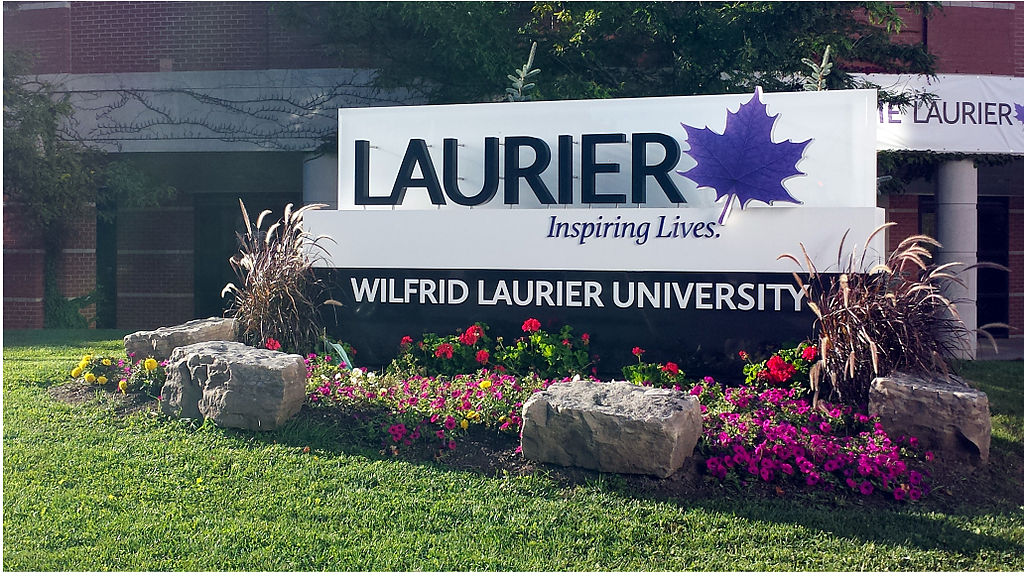
An Ontario university has apologized to a teaching assistant who was severely chastised for airing a clip of a debate featuring a controversial figure, saying the woman was not treated according to the institution’s values.
The president of Wilfrid Laurier University said the school is proceeding with a third-party investigation into the dispute with graduate student Lindsay Shepherd, but said recently revealed audio recordings of her interactions with her immediate superiors made it clear an apology was in order.
Shepherd said she discreetly recorded a meeting with three Laurier staff members in which she was roundly criticized for failing to condemn the views of polarizing University of Toronto professor Jordan Peterson, who has refused to use gender-neutral pronouns. She had aired a clip of a debate featuring the professor as part of a communications tutorial.
On the recording of the meeting, Shepherd is heard tearfully defending her decision to play the clip while staff accuse her of being transphobic and liken her failure to condemn Peterson to remaining neutral on the views of Adolf Hitler.
“The conversation I heard does not reflect the values and practices to which Laurier aspires,” the university’s president, Deborah MacLatchy, said in a statement Tuesday. “I am sorry it occurred in the way that it did and I regret the impact it had on Lindsay Shepherd.”
Shepherd, 22, said she accepted and welcomed the apology, but felt it rang hollow coming on the heels of intensive media attention around her case.
“Let’s not forget that this was their only option,” she said. “They were basically forced to do it out of public and media shaming.”
The saga began earlier this month when Shepherd led two tutorial groups of students taking a first-year communications course.
As part of a lesson on the complexities of grammar, Shepherd said she was trying to demonstrate that the structure of a language can impact the society in which its spoken in ways people might not anticipate.
To illustrate her point, she said she mentioned that long-standing views on gender had likely been shaped by the gender-specific pronouns that are part of English’s fundamental grammatical structure.
The clip of Peterson debating sexual diversity scholar Nicholas Matte, she said, was meant to demonstrate ways in which the existence of gender-specific pronouns has caused controversy. A student complaint about the class prompted a meeting with supervisors.
In Shepherd’s recordings of her meeting with superiors, which she shared with The Canadian Press, she is heard arguing that she tried to present the situation neutrally in order to foster debate and discussion, and states that she herself does not support Peterson’s views on gender-neutral pronouns.
Shepherd’s supervisor Nathan Rambukkana is heard explicitly drawing parallels to white supremacist propaganda and is heard saying Shepherd should not have taken a neutral stance on the issue in class.
In an open letter to Shepherd, Rambukkana apologized.
“While I still think that such material needs to be handled carefully, especially so as to not infringe on the rights of any of our students or make them feel unwelcome in the learning environment, I believe you are right that making a space for controversial or oppositional views is important, and even essential to a university,” he wrote in the letter.
“The trick is how to properly contextualize such material.”
Rambukkana also apologized for meeting with Shepherd in the company of two other colleagues, responding to criticism that such a setup demonstrated a power imbalance.
Shepherd argued, however, that Rambukkana’s caveat about contextualizing suggests Laurier is still opposed to hearing multiple perspectives on an issue, saying telling students what to think of any given opinion ahead of time cripples their capacity to form their own thoughts.
“It doesn’t matter how nicely you put it, it’s not OK to say that you can’t debate issues and you have to think a certain way,” she said.
In addition to the inquiry probing Shepherd’s case, MacLatchy said Laurier has also struck a task force looking at issues of academic freedom.
“Laurier is committed to the abiding principles of freedom of speech and freedom of expression,” she said.
“Giving life to these principles while respecting fundamentally important human rights and our institutional values of diversity and inclusion, is not a simple matter. The intense media interest points to a highly polarizing and very complicated set of issues that is affecting universities across the democratic world. “